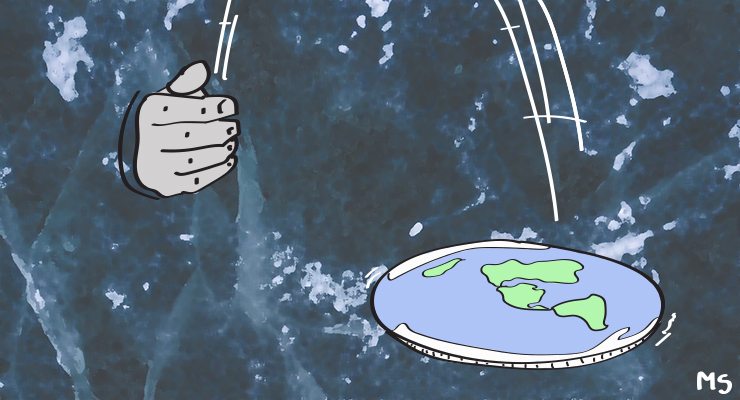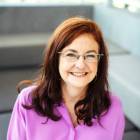
The effects of last week’s shooting in Wieambilla, Queensland, which resulted in the deaths of two police officers and a member of the public, will play out for years. The questions raised demand meticulous investigation and public answers.
Those investigations will probe police communications across borders, the history of the three killers shot dead by police — Gareth Train, his wife Stacey Train and brother Nathaniel — the stockpiling of arms on an isolated property, and how the trio managed to live in a tiny community while almost never being seen.
But the lure of conspiratorial theories, egged on by politics and social media in equal measure, should not be missed.
Gareth Train’s long history of paranoid posts and interaction with conspiracy websites has surfaced repeatedly in the past week, prompting questions about why people fall under the spell of conspiracies and how widespread they might be.
University of Queensland School of Political Science and International Studies professor Katharine Gelber says social media has changed how conspiracies now “manifest”.
Conspiracists used to take little bits of facts to construe something ostensibly meaningful that was implausible to most of us. But a modern conspiracy theory doesn’t rely on facts. “It relies on ‘I heard it’ or ‘I saw it on Facebook’. And that makes it more dangerous,” said Gelber.
Modern conspiracies are also “toxic to democracy”, she explains: “We know there are countries in the world that have factories of people whose entire job is to set up bots to spread disinformation, with the ultimate purpose of undermining democratic institutions.”
There is little data available on the speed at which conspiracy theories are growing, and whom they are enveloping. But experts believe Trumpism and the global pandemic — including vaccine mandates — have sown a fertile environment that has helped flourish a climate of decreasing trust and eroding democracy.
The end result is that our democratic institutions — courts, universities, electoral systems and the media — risk being undermined.
Professor Gelber says most Republican voters still believe the 2020 US federal election was “stolen”, despite evidence proving otherwise. The “fake news” phenomenon is another example of the media being undermined by “nothing other than an ideological belief”.
Despite popular opinion, those lured in by conspiracy theories fit all education levels and professions.
Psychologist Carly Dober has had a long interest in those who latch on to conspiracies, and says research suggests they attract people with low trust in others, and those who need to feel special, who believe the world is inherently dangerous, and who see patterns and trends where there are none.
Three key psychological motivations for conspiratorial thinking often exist: epistemic motivations, where a person desires knowledge and needs to feel safe and have agency over their life; social motivations, where they want to feel good about themselves and feel part of something superior; and existential motivations, where they need to understand why things were occurring.
Both Dober and Gelber point a finger at the “baseless claims” often parroted by mainstream politicians as fuelling an environment where conspiracy theories can take hold.
Politicians routinely lie, or say one thing while doing another. Consider the detention and deportation of Novak Djokovic in January this year for flaunting Australia’s vaccine laws, which occurred while some in the Coalition’s own ranks eschewed vaccine mandates. Or how the Morrison government touted an anti-trolling bill as a win for free speech while also wanting to make it easier to bring defamation cases against those who spoke out.
Dober says that in addition to reining in political lies and regulating social media, media literacy needed to be given a greater focus in education from as early as primary school. That would build skills in spotting incorrect information, weighing up the evidence presented by different people, and understanding how to verify sources.
That might decrease the vulnerability of those attracted to wayward conspiracies, as well as provide at least one positive legacy from a tragedy that has troubled us all.








Critical thinking is an essential skill which should be taught to all children. Howard’s goal of public school “quiet compliant workers” are today those most vulnerable to conspiracy theories. As are those in taxpayer funded religious schools who teach / demand? a literal interpretation of religious texts, across subject areas other than religion.
Critical thinking is taught in schools, and has been for decades.
I don’t know which schools you went to.
I’ve been to some, and taught at more.
I was taught it decades ago, and it was the most useful thing I learnt.
I only know from Vic experience where critical thinking (& media analysis) was taught as part of English Expression in HSC late ’70s, Part D or 25% of syllabus.
Sometime in the ’80s it was quietly disappeared without fanfare to be replaced apparently by implicit or hidden curriculum skills development versus explicit teaching. Conversely right wing libertarian think tanks demand more teacher centred &/or rote learning instruction e.g. CIS on maths teacher training in universities.
Further, one is aware that skills of analysis, especially related to science and data, are ‘red rag to a bull’ to many of the right e.g. climate science, Covid etc. who expect everyone to be ‘quiet Australians’; raging lefty Kevin Andrew once asked why students need skills of analysis vs. rote learning…..
Unsurprisingly, many nations which went forwards on modern education curricula K12, VET & higher ed in the ’90s & noughties, have now gone backwards for political reason e.g. Russia, Hungary etc. dropping many courses in social sciences, precluding application of (high) level skills of analysis (a la Bloom’s Taxonomy inc. evaluation & synthesis).
Raging lefty, Kevin Andrews of RWNJ religious zealotry tucked in with Howard…haha
I’ve had this discussion with a friend – we could not decide whether you CAN actually teach critical thinking or whether it is something ingrained or is heavily influenced by our parents and upbringing.
In my humble experience, discerning thinking can be both taught, and ingrained through parents and upbringing.
Which brings to mind Socrates’ insistence (in the dialogues by Plato) “I cannot teach anybody anything, I can only make them think”.
It should also be noted that Socrates’ fellow citizens became so alarmed by his attempts to spread the practice of thinking, particularly among the young folk, that for the protection of society they put him on trial, found him guilty and killed him.
*to cut a long story short.
Fair comment!
Professor Gelber explains:
Yes. Unfortunately, for anyone not deep into the real-world evidence, this claim too looks very much like a conspiracy theory. A part of the problem is that there are real conspiracies, and there are verifiable theories about them. The difficulty is distinguishing those from the swivel-eyed crazy nonsense that is flourishing so aggressively under the helpful conditions provided by modern society and its technology.
Spot on. In a world full of propaganda the truth is always called conspiracy. But Madonna makes no mention of the differentiality. She must likes the likes.
Exactly – and it’s certainly not helped by legacy media who’s assisted in spreading misinformation/propaganda for decades, but somehow they rarely get a mention. There are barely any authoritive sources sp at this point people just make their own truths.
Nowadays lack of critical thinking runs in parallel with legacy and fringe media for political agitprop and mileage.
It’s really just a modern manifestation of a problem as old as communication itself: how do you separate the signal from the noise? See the posts above on critical thinking. It can get messy, and in the end it comes down to a combination of good judgement and good faith. How to achieve that? Still working on it…
Apologies for stating something similar below
It will be hard to stop conspiracy theories when there is money to be made in pushing them, as well as a sense of power.
Someone once suggested that there is no need for ‘conspiracy theories’ when you have stupidity, to ‘stupidiity’ you can probably add greed and ego.
Who once suggested that?
Umm, it’s not just social media that encourages conspiracy theories, it’s also outlets like Fox News and other tentacles of Ms King’s former employer.
The Church has theories about Satan, trans people and birth control. Great cathedrals though
Agree, which are fed conspiracies masquerading as ‘research’ by right wing think tanks e.g. DeSmog links Koch Network outlets to tobacco, food, climate and Covid science; deny the science, then delay via media, MP and influencer messaging….. in favour of prayer….
Vaccine mandates are often touted as a trigger for the sudden onset of paranoia and conspiracy theorising. However other sometimes very onerous public health measures do not set this off. Here I would say the quarantining and orders for the slaughter of animals infected by contagions. A very distressing situation for any farmers anywhere in the world but the necessity of it not questioned. The need for animal vaccinations not questioned. When we had the outbreak of HIV/AIDS public health measures were instituted and knowingly infecting another person criminalised. It was not vaccine mandates but rather the cynical politicisation and media manipulation for political ends that led to an explosion of conspiracists.
How about disease control?